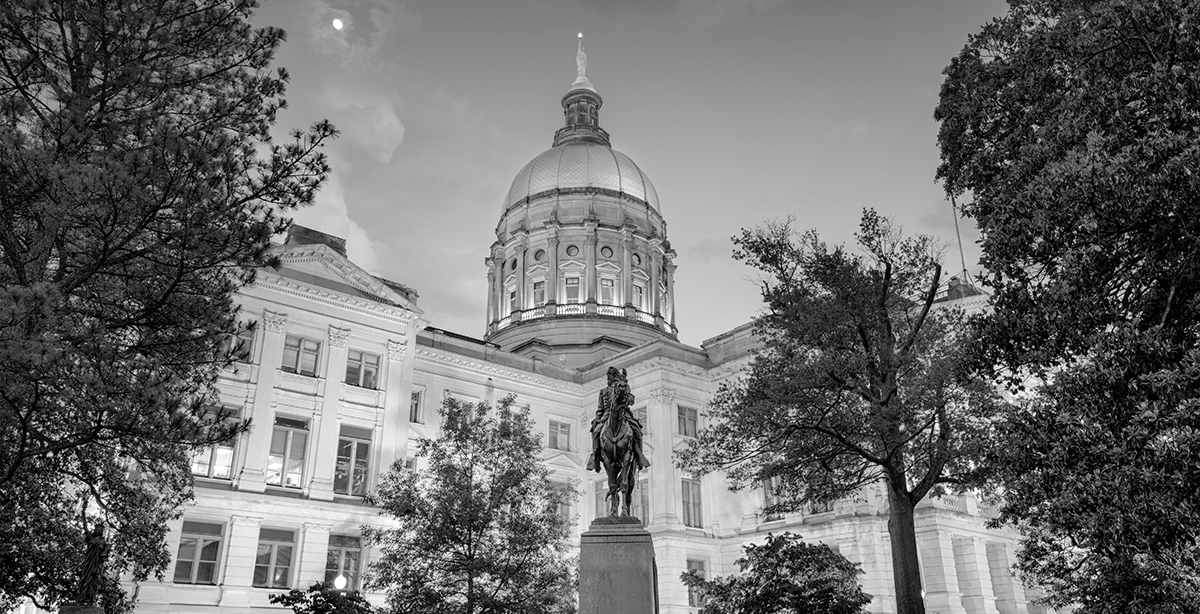The Georgia General Assembly wrapped up its 2025 legislative session on April 4, with the Senate (much to the surprise of those in the House) adjourning 3 hours before its constitutional deadline.
The General Assembly introduced 1310 bills in 2025, not including resolutions. Governor Kemp has until May 14 to act on any legislation pending his signature.
Governor Brian Kemp’s (R) lawsuit reform package, which he announced in January as his top legislative priority, successfully advanced to his desk despite strong Democratic opposition. The main bill, SB 68, makes it harder for claimants to sue businesses but many voiced concerns that it would negatively impacts victim’s rights and ability to seek compensation. SB 68 passed the House by just a single vote before advancing through the Senate.
Other Republican priorities were met with mixed success. Lieutenant Governor Burt Jones’ (R) “Red Tape Rollback Act” - a state analog for Elon Musk’s DOGE in Washington - failed to receive floor consideration in the House. Additionally, a significant elections overhaul bill which would have allowed for paper ballots and removed the state from a voter registry verification database, was similarly stymied though the legislature will continue to examine election issues during the interim. The GOP still scored victories on taxes and more politically hot-button subjects: the legislature passed an income tax cut and a ban on transgender athletes in women’s sports.
Both parties were able to work together on select issues. Bills that passed with broad bi-partisan support include:
- HB 196, which requires insurers to reimburse pharmacies for self-administered drugs in the state health plan based on National Average Drug Acquisition Cost;
- HB 428, which codifies the right to in vitro fertilization; and
- HB 399, which requires out-of-state landlords to have in-state staff to manage tenant communications.
The House and Senate finalized the $37.7 billion budget on the last day of session after last-minute negotiations with the Governor. Of that, over $715 million will go towards financing capital projects. Other notable appropriations include $18 million for student mental health resources, $180 million to provide affordable rental housing to lower-income households, and $968 million for workforce development through certificate, diploma, and degree programs in technical education and continuing education programs.
Bills that did not pass this year will retain their status and be eligible for consideration when the legislature returns on January 12, 2026.
